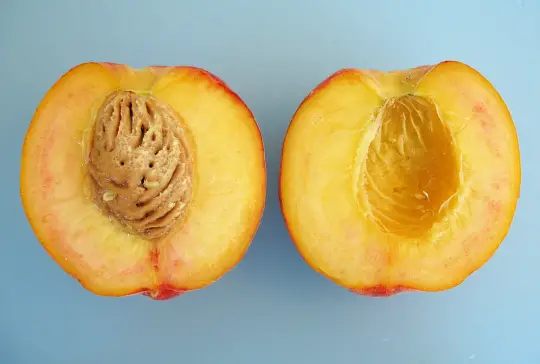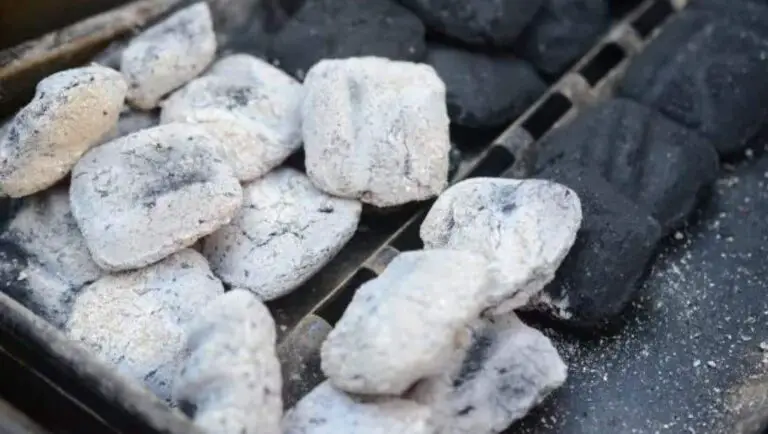The journey of fruit always begins as unripe and gradually ripens until it is ready to be consumed. Peaches, which are rich in nutrients like vitamin C, are available throughout the year. However, during certain times of the year, the only peaches available might be unripe. The big question that arises is whether or not unripe peaches can be cooked.
Understanding the Unripe Peach
Before we dive into cooking with unripe peaches, it’s important to understand what constitutes an “unripe” peach. Simply put, an unripe peach is one that has not yet reached its full maturity stage. Such peaches have a green flesh and skin with no blush or red color on them.
I bet you’re wondering why anyone would want to cook with an under-ripened peach? Well, let me tell you that there are benefits to using such fruits in the kitchen. For instance, they tend to add a unique tart flavor when used in savory dishes and can also be sweetened by incorporating sugar into their recipes.
Characteristics of an Unripe Peach
As aforementioned, the characteristics of a green peach include a hard texture and sour taste. They also tend to have less juice content compared to fully matured ones.
Nutritional Value of Unripe Peaches
Unripe peaches contain valuable vitamins and minerals like vitamin A, vitamin C (as much as 10% more than ripe ones), potassium and iron amongst others.
Health Benefits and Risks Associated with Eating Them
Unripes peaches offer various health benefits like aiding digestion due to high fiber content; however, caution should still be taken since they’re harder on the digestive system than ripe ones and could cause abdominal discomfort if consumed in large amounts.
Now that we’ve covered what defines an unripe peach let’s delve into ways you can cook them without compromising their flavor.
Cooking with Unripe Peaches
Baking with Unripe Peaches
Baking with unripe peaches is probably the most popular way to cook them. Types of dishes that are suitable for this approach include pies, crisps, cakes, cobblers and muffins. When baking with unripe peaches ensure to peel off their skin then cut them into small pieces. This makes the fruit more tender and allows it to absorb sugar more readily.
Incorporating sugar in your baked goods’ recipes is also crucial; otherwise you risk ending up with a tart dessert. Adding a crumbly topping made from oats or crumbled biscuits can help mask any tartness of the peaches.
Cooking Green Peach in Savory Dishes
Although using an unripened peach while cooking alongside meats might seem unheard of, there are a wide range of savory recipes that call for green ones. Grilled peaches make the perfect accompaniment to BBQ meat dishes as they add a tangy twist to traditional flavors such as chicken wings or pork chops.
Peach sauces can also be made by simmering up diced under ripened fruit together with ginger or any citrus flavors and then serving it over grilled meats like steak or salmon.
Tips on How to Ripen Peaches Faster
It’s not uncommon to pick out unripe peaches at the supermarket accidentally; maybe because they look pretty or you needed them for cooking immediately and there were no ripe options available.
Here are some quick tricks on how to speed up the ripening process of under-ripened peaches:
- The Paper Bag Method – Place your unripe peaches into a brown paper bag along with any already ripened fruits (like bananas) to boost ethylene gas levels which speeds up the ripening process.
- Sunlight Exposure – Placing your under-ripened peaches in direct sunlight stimulates ripening.
- Store them in a Warm Spot – Peaches tend to ripen faster in warm environments, so try placing them on your kitchen counter.
The Verdict: Is it Safe and Tasty?
Under-ripened peaches are safe for consumption; however, some digestive issues may arise after prolonged intake or when eating them raw.
After cooking, unripe peaches’ taste changes from sour/bitter to slightly sweet with an added tartness. When cooked right, the fruit offers an amazing contrast of flavors that can add to any dish.
Conclusion
Cooking unripe peaches can offer a new twist of flavor that many of us may not have tried before. While they’re harder than ripe ones and might cause digestive discomfort if consumed in their raw state; they offer valuable nutrients like vitamins A and C. So go ahead, experiment with cooking unripened peaches and let your tastebuds guide you!
Q&A
- Q: Is it safe to eat unripe peaches? A: While unripe peaches may not taste as sweet as ripened ones, they are generally safe to eat. However, some people may experience stomach discomfort due to the high tannin levels in unripe fruit.
- Q: Can you cook with unripe peaches? A: Yes, you can! Unripe peaches can add a tangy flavor to salsas, chutneys, and even baked goods like pies and cobblers. Be sure to cook them thoroughly, as raw unripe peaches can be tough on the digestive system.
- Q: How can you tell if a peach is ripe or not? A: Ripe peaches will have a deep golden hue and give slightly when gently pressed with your finger. If a peach is still hard and its skin has a greenish tint, it’s likely not fully ripe yet.
- Q: What are the nutritional benefits of unripe peaches? A: Unripe fruit in general tends to have higher levels of nutrients than their ripened counterparts. Unripe peaches contain more fiber and vitamin C than fully-ripened ones, making them an excellent addition to any healthy diet.


